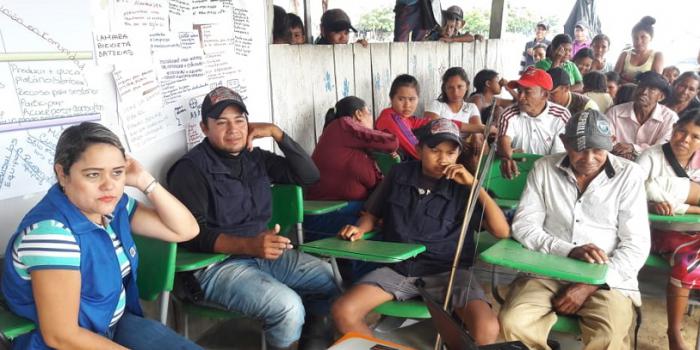
In Vichada, the Kanalitojo indigenous community begins developing communication pieces as a measure of satisfaction
Kanalitojo indigenous community expands its knowledge about communication, in order to make graphic pieces with which they want to make known the importance of their traditions.

On a day held by the Unit for Victims and the National Learning Service (Sena), 51 members of the indigenous community of Kanalitojo de Puerto Carreño (Vichada), held the first workshop on communication, as a measure of guarantee of no repetition and dignification.
The event was developed through recreational activities, in which the members of the indigenous community expressed what communication means to them and what is the importance it has in society and thus, in a simple way, they were able to know the role of the media communication and how they can be used to make visible any activity you have.
With the explanation given, the Kanalitojo Indians showed interest in wanting to make known a little of the way they live and why their land is ancestral and of great importance, and that they want to forget that they have been targeted by armed groups, that the they have forced out of the place where they have lived for 100 years.
That is why the Victims Unit will continue working with the Kanalitojos in the design and implementation of a communication and reconciliation strategy between the indigenous community, settlers, organizations and entities of Puerto Carreño and the department of Vichada, which facilitates the recognition and respect, as guardians of ancestral knowledge with special jurisdiction and self-government.
Carlos Pardo Alezones, director for the Target and the Eastern Plains of the Victims Unit, points out that these measures of guarantees of non-repetition are ways of repairing the victims and of not repeating the violation of their rights.
It is clear that this community is subject to collective reparation, a process that is in the implementation phase.
(End/DSC/CMC)






